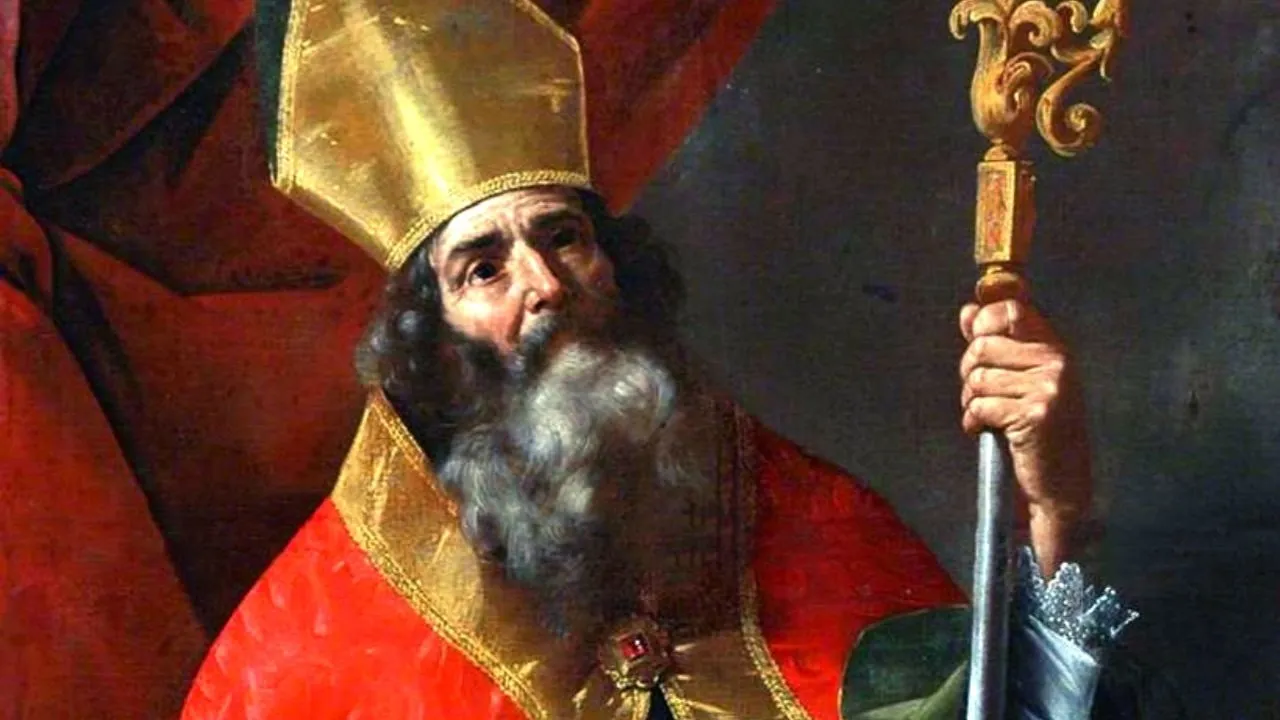
Source: https://bit.ly/2P9kZU4
Ambrose, bishop of Milan, was born in Trier of the
noble Aurelian family. His mother moved the family to
Rome after the death of his father. Educated in rhetoric
and law, Ambrose was first employed in Sirmium
and then in c. 370 c.e. as governor of Milan. After
the death of the Arian bishop of Milan, a violent conflict
broke out in the city over whether the next bishop
would be a Catholic or an Arian. Ambrose intervened
to restore peace and was so admired by all that both
sides accepted him as a candidate for bishop, although
14 Andes: Neolithic
he was not even baptized at the time. He was baptized
and consecrated a bishop within a week. He immediately
gave his wealth to the poor and devoted himself
to the study of scripture and the Greek fathers of the
church. As a bishop, he was famous for his preaching,
which was partly responsible for the conversion
of the great theologian Augustine of Hippo, whom
Ambrose baptized at Easter in 387.
Ambrose’s career was heavily involved with politics.
He was continually defending the position of the
Catholic Church against the power of the various Roman
emperors during his episcopate: Gratian, Maximus,
Justina (pro-Arian mother of Valentinian II), and
Theodosius I.
He was able to maintain the independence of the
church against the civil power in his conflicts with
paganism and Arianism. Regarding the former, Ambrose
battled with Symmachus, magistrate of Rome,
over the Altar of Victory in the Senate: The emperor
Gratian had removed the altar in 382, and after Gratian’s
death Symmachus petitioned Valentinian II for
its restoration. Under Ambrose’s influence, the request
was denied.
Arianism received a blow when Ambrose refused to
surrender a church for the use of the Arians. His decision
was taken as sanctioned by heaven when—in the
midst of the controversy—the bodies of the martyrs
Gervasius and Protasius were discovered in the church.
Ambrose further strengthened the church’s authority
before the state in two incidents in which he took a firm
stand against the emperor Theodosius I.
One incident involved the rebuilding of the synagogue
at Callinicum in 388; the other had to do with
the emperor’s rash order that resulted in the massacre
of thousands of innocent people at Thessalonica in the
summer of 390. Ambrose refused to allow Theodosius
to receive the sacraments until he had performed public
penance for this atrocity. The reconciliation took place
at Christmas 390. One reason for Ambrose’s influence
over Theodosius was that, unlike most Christian emperors
who delayed their reception into the church until
their deathbed, he had been baptized and so fell under
the authority of the church in his private life.
Ambrose’s knowledge of Greek enabled him to
introduce much Eastern theology into the West. His
works include hymns, letters, sermons, treatises on the
moral life, and commentaries on scripture and on the
sacraments. He was also a strong supporter of the monastic
life in northern Italy.